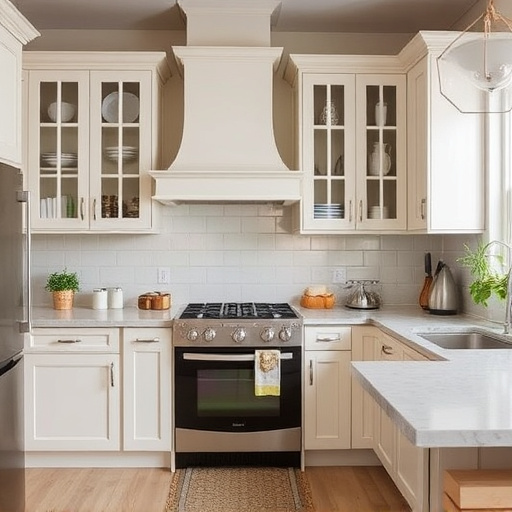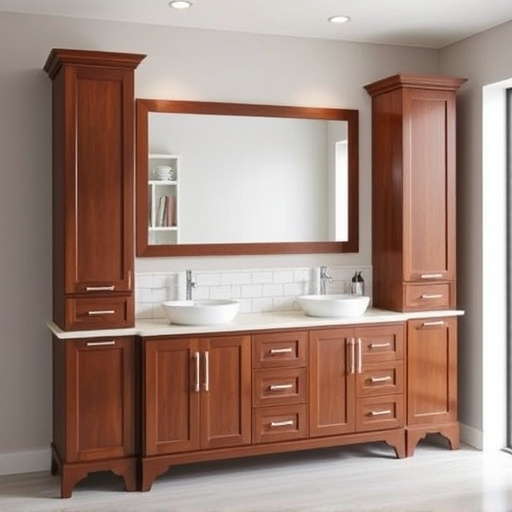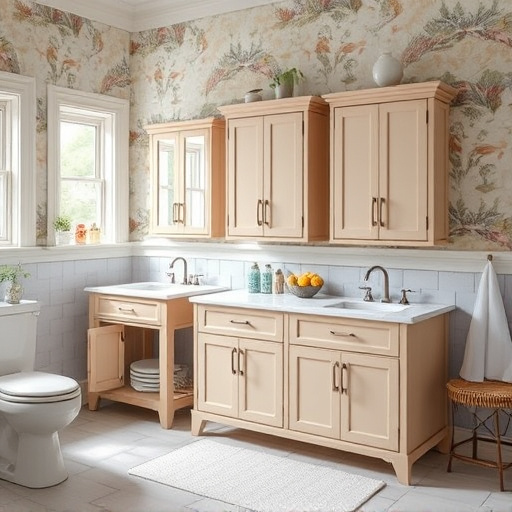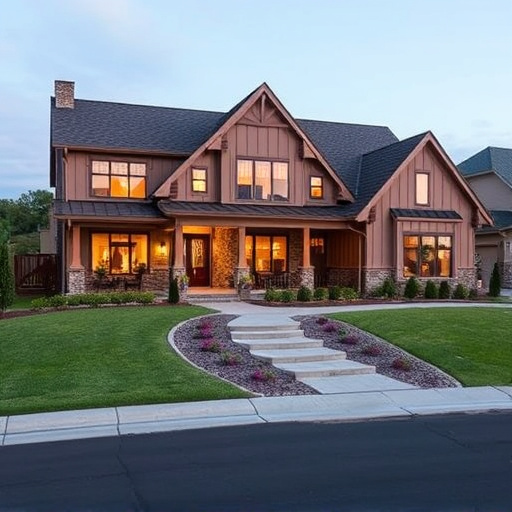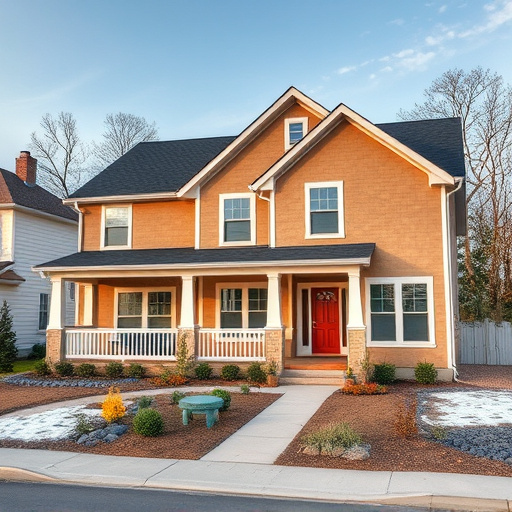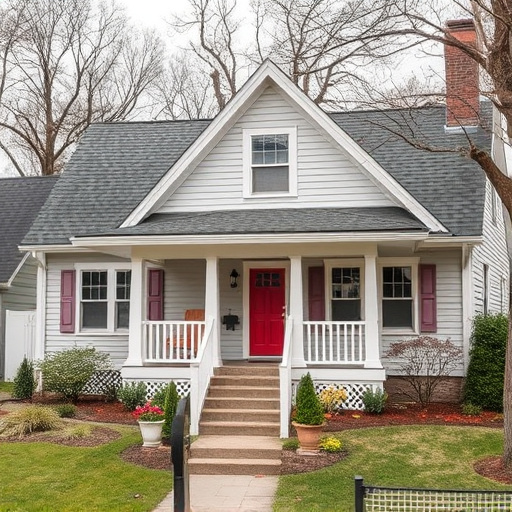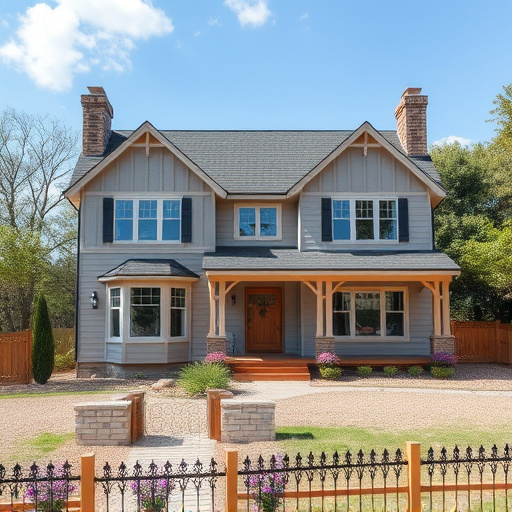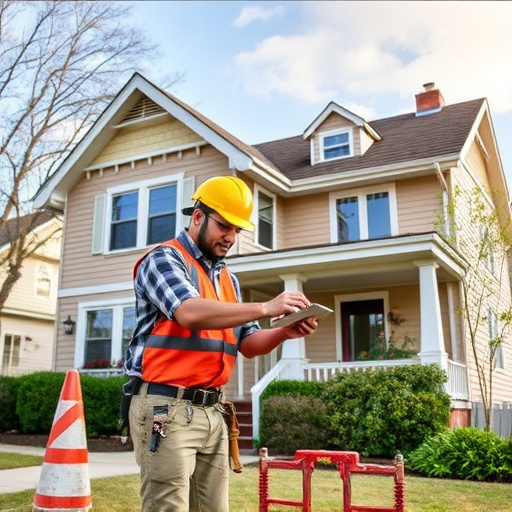Residential builders are increasingly prioritizing energy efficiency in response to growing demand for sustainable housing. They employ advanced building techniques, high-efficiency appliances, smart thermostats, and well-designed natural lighting systems to create homes that offer comfort while consuming less energy. By incorporating eco-friendly materials like recycled wood and bamboo, advanced insulation technologies, and renewable energy sources, builders reduce environmental impact. Digital advancements like energy modeling software and smart home systems further enhance energy savings. These innovations make residential builders key architects of sustainable living.
In today’s eco-conscious world, energy-efficient homes are no longer a niche preference but a necessity. Residential builders play a pivotal role in shaping sustainable living by adopting innovative solutions. This article explores the comprehensive strategies and advancements that transform traditional construction into environmentally friendly habitats. From understanding the fundamentals of energy efficiency to uncovering cutting-edge technologies, we delve into the key elements guiding residential builders toward creating eco-conscious homes.
- Understanding Energy Efficiency in Residential Construction
- Building Materials and Techniques for Sustainable Homes
- The Role of Technology in Creating Eco-Friendly Residences
Understanding Energy Efficiency in Residential Construction
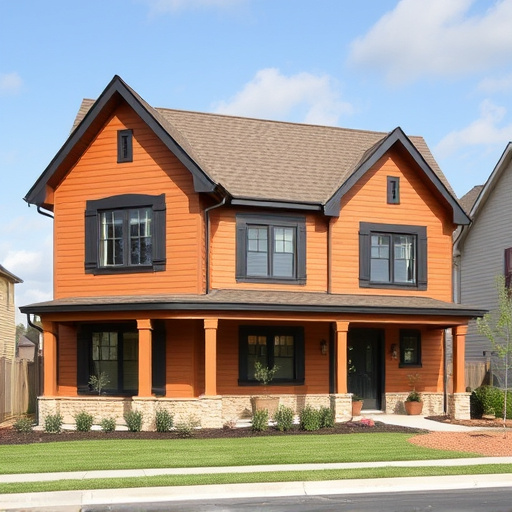
Energy efficiency is a key focus for modern residential builders as the demand for sustainable housing solutions grows. It involves creating homes that consume less energy for heating, cooling, lighting, and power while offering equivalent or improved comfort levels. This can be achieved through various means, such as better insulation, high-efficiency appliances, smart thermostats, and well-designed natural lighting systems.
Residential builders play a pivotal role in implementing these solutions by incorporating advanced building techniques and materials that contribute to energy savings. For instance, kitchen and bath renovations offer opportunities to install energy-efficient fixtures and appliances, while exterior painting can enhance a home’s thermal performance. By adopting these strategies, builders cater to environmentally conscious buyers seeking not just comfortable living spaces but also homes with reduced environmental footprints.
Building Materials and Techniques for Sustainable Homes
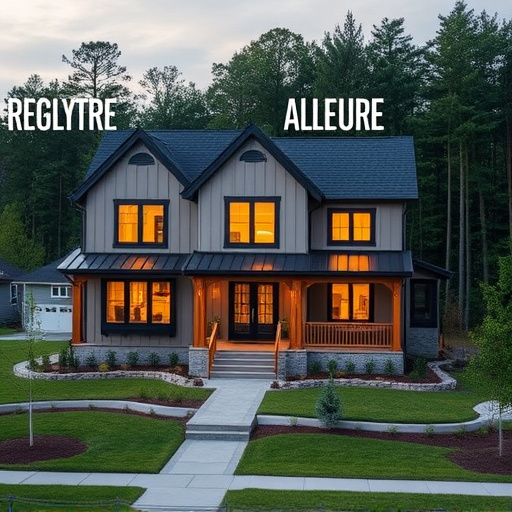
Residential builders play a pivotal role in shaping the future of sustainable living by adopting innovative building materials and techniques for energy-efficient homes. One of the key aspects is incorporating eco-friendly materials that not only reduce environmental impact but also enhance structural integrity. For instance, builders can opt for recycled or sustainably sourced wood, bamboo, and fiber cement boards for framing and cladding, replacing traditional materials that contribute to deforestation and carbon emissions.
Additionally, advanced insulation technologies and double-glazed windows significantly improve a home’s energy efficiency. These solutions help regulate indoor temperatures, reducing the reliance on heating and cooling systems. Home renovation projects can also involve floor replacements with more sustainable options like engineered hardwood or linoleum, which offer durability and low maintenance while minimizing environmental impact. For those considering multiple room remodels, focusing on air sealing and using high-performance appliances further contributes to creating a tightly sealed, energy-efficient home.
The Role of Technology in Creating Eco-Friendly Residences
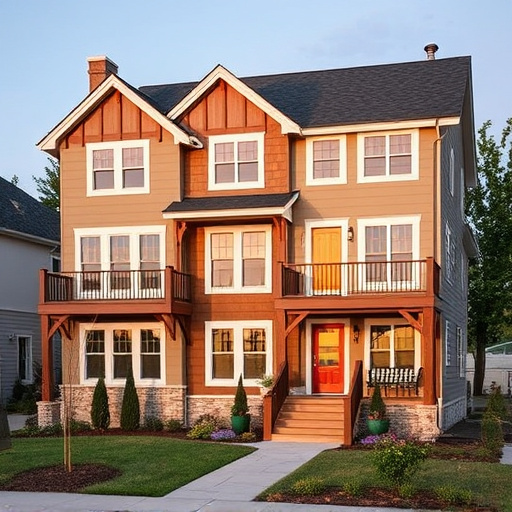
In today’s digital era, residential builders are leveraging technology to create eco-friendly homes that offer both sustainability and comfort. Advanced tools like energy modeling software enable builders to predict a home’s energy performance before construction begins, ensuring efficient use of resources. Smart home systems, another technological marvel, play a significant role in making residences more energy-efficient. These systems automate various tasks, such as lighting control and temperature regulation, reducing energy consumption and utility bills for homeowners.
Moreover, the integration of renewable energy sources like solar panels and geothermal heating/cooling systems is becoming increasingly common in residential builder projects. These technologies not only reduce a home’s carbon footprint but also offer long-term savings on energy costs. With the help of these innovations, renovation services and home improvement projects are transforming traditional homes into modern, eco-conscious abodes that contribute to a greener future.
Residential builders play a pivotal role in shaping the future of sustainable living. By adopting energy-efficient practices, utilizing eco-friendly materials, and embracing innovative technology, they can transform homes into havens that reduce environmental impact. These solutions not only benefit the planet but also offer long-term financial savings for homeowners. As the demand for green buildings grows, residential builders who prioritize energy efficiency will be at the forefront of a movement that redefines comfortable living while preserving our planet’s resources.





